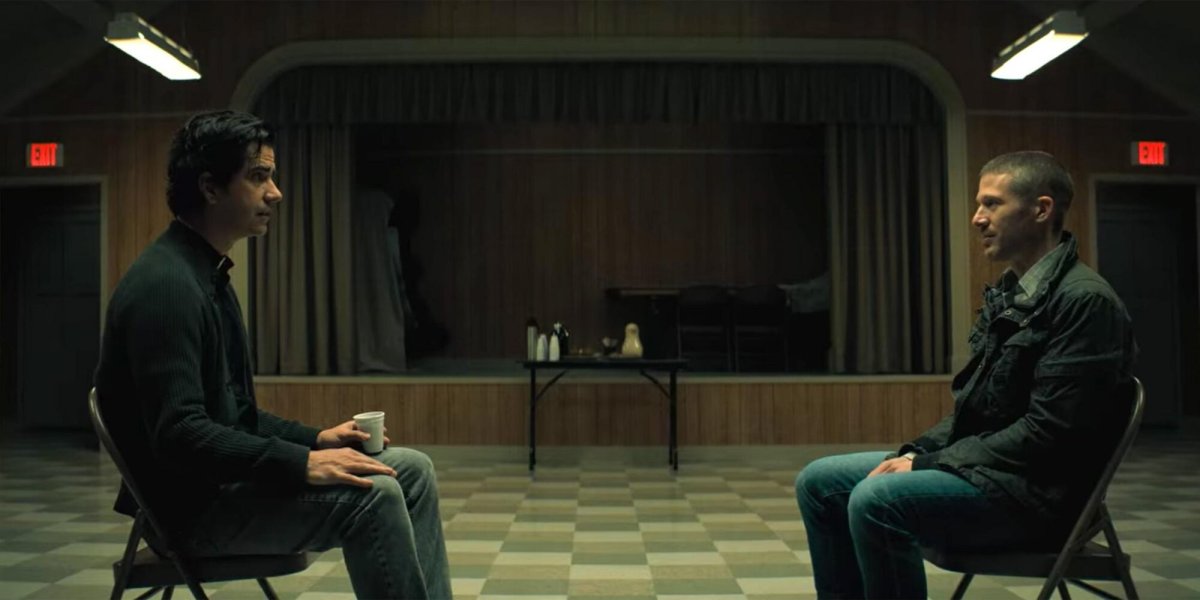On the 24th of September, Midnight Mass, the latest Mike Flanagan project, dropped on Netflix. After success after success including Doctor Sleep, Gerald’s Game and the preceding series The Haunting of Hill and The Haunting of Bly Manor, you might have thought that you knew what to expect from Flanagan and his team. And though Midnight Mass isn’t a departure in quality or style, the subject matter is, as far as I’m aware, new ground and may just be their best work yet.
As a non-American who has been largely disconnected with faith and theology, only visiting churches for weddings and funerals, and the odd Scouts day or choir performance, I found myself unsure as to whether I would connect with Midnight Mass as much as I had with Flanagan’s other work. My worries were quickly dashed.
The show is multi-layered and filled to the brim with themes, but the ones I found the most compelling and explored in a way I had not seen before were: where does your faith come from and what informs your belief.
And, even though it mostly explores Christianity, there are many types of faith on display and even outside of religion. There’s hereditary faith, passed down through family ties, there’s the kind that comes from overwhelming love and devotion, the kind that comes from duty and tradition, from fear and shame, the kind that comes from a desire to be better than those around you.
Some people, though I haven’t seen them, have criticised the show for its penchant for monologues. But in a show about theology, having people preach about and discuss their beliefs, is enrapturing in its simplicity. It’s intimate and spiritual, fitting the show’s themes.
Of course the show isn’t perfect, it was never going to be, and though I have problems with some of the effects and how some things were given more attention than they warranted and others less, I found that this series solved a lot of issues that I’d had with Flanagan’s previous work with Netflix. Where Hill House and Bly Manor spent a lot of time on story and plotlines that went nowhere and didn’t add all that much, Midnight Mass has a singular focus that affords it some freedom to explore the topic and themes more deeply.
The whole conceit of the show rest on this one idea: a pious but lost priest finds evil, mistakes it for salvation and spreads that evil throughout the community he loves so dearly. He wants to believe so desperately that he can change things through the one thing he has, the one thing he has spent his life devoted to, he wants to believe that good can come from this simply because he believes it in his heart. And the prodigal son (Riley) returns without faith or hope, looking not to absolve himself but to do right by those around him. He tries to show the priest that what he’s doing is wrong. He tries, the only way he knows how, to save the ones he loves.
In the end, it comes down to one thing. Does your faith come from a selfish love or a selfless one?
On an unrelated note I, like a few others, have a bone to pick with those that have criticised the show for having ‘monologues’. There are these large swaths of time where everything slows down and we sit with a few characters and they talk, they talk to each other in that intimate and honest way that usually happens at 2am between friends or they bare themselves in order to shine some light on the shadows. Some people have said that it grinds everything to a halt, stops the plot dead, takes too long and is unrealistic. When did people talking to each other become unrealistic? I’ve had conversations like the pivotal discussion of the afterlife, quite a few in fact, and I guess we just have different friends. The idea that the plot isn’t going anywhere when characters are talking is nonsense, this is the plot, pay attention and you’ll find it. I saw someone suggest that they just do a flashback when the sheriff is talking about his history and my gut revolted at the idea. Things do not always have to be racing from one dramatic set piece to the next, and just because it’s dialogue doesn’t mean that it’s telling not showing, talking about it this way is kind of a kick in the teeth for the actors who put their heart into these performances. Maybe try to sit back and listen, who knows, you might enjoy it.
